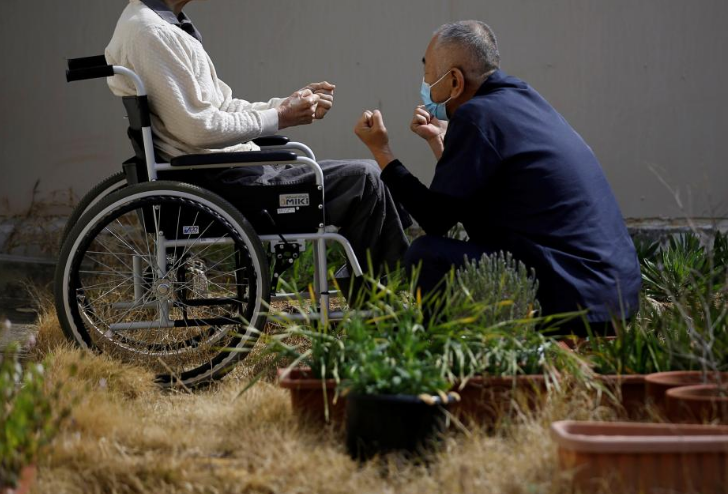A Japanese prison in Tokushima converted a building to house elderly inmates, putting itself at the forefront of an effort to cope with Japan's graying prisoner population.
日本德岛县的一所监狱改造了一栋建筑用于关押老年囚犯,成为应对日本囚犯人口老龄化的先行者。
It also employs a caregiver trained in working with the elderly for those in the hospital ward.
该监狱还为病房里的囚犯雇佣了一名专业的老年人护工。
The number of prisoners aged 60 or older has risen 7% from a decade ago to 9,308, and made up 19% of the entire prison population in Japan in 2016.
2016年,60岁及以上的日本囚犯人数达到9308名,在全国囚犯人数中的占比从10年前的7%增加到19%。
That compares with only 6% of that age bracket in the US, and about 11% in South Korea.
而在美国和韩国,这一年龄段囚犯人数的比例分别约为6%和11%。

A sizable chunk of elderly inmates are repeat offenders, which experts say reflects the difficulties of finding jobs after release and coping with the uncertainty freedom brings.
许多老年囚犯是惯犯,专家称这反映了犯人刑满释放后难以找到工作,以及难以应对自由带来的不确定性。
"I have a heart condition and used to collapse often at the (prison) factory," said an 81-year-old inmate at Tokushima, imprisoned for life for killing a taxi driver and injuring another person six decades ago.
德岛县一名81岁的犯人表示:“我有心脏病,经常在(监狱)的工厂里昏倒。”他在60年前,因为杀害计程车司机以及伤害另一人遭判无期徒刑。
Despite his life sentence, the 81-year-old has been released twice on parole, but wound up back in prison after being caught drinking alcohol, a parole violation. He hopes he will be paroled again so he can see his 103-year-old mother.
这位被判终身监禁的81岁老人已获假释两次,但当他违反假释条例喝了酒后,又回到了监狱。他希望再次获得假释,好去见他103岁的母亲。
"I want to get out of the prison while she's still alive," he said. "That's all I want."
他表示:“我想趁她还在世的时候出狱。这就是我想做的事。”













